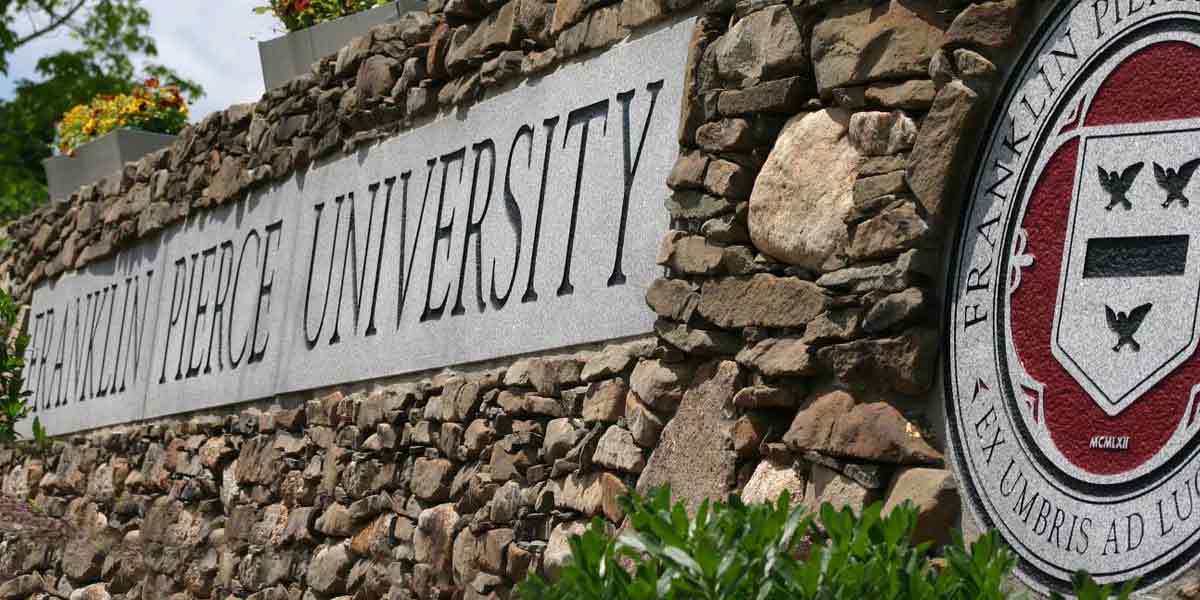Jennifer Piette – Creating a Buzz on Campus
Jan 1, 2020

| Image |  |
|---|---|
| Caption |
|
Pollinator Observation Garden
The next time you walk out of the Franklin Pierce University Bookstore you may notice a small marker and an inviting slate walkway, both leading the way to the University’s Pollinator Observation Garden.
This garden sprouted from the vision of Franklin Pierce University Environmental Sciences Major Jennifer Piette last spring when she decided to build the garden as part of her sustainability certificate requirement. To her, this project was more than just a requirement, “It is a way to make a difference in the alarming issue of pollinator decline.” Her vision was to create a campus garden that would be both aesthetically pleasing and supportive of native pollinators such as butterflies, bees and moths. “The importance of pollinators is not just so that flowers in a person’s garden can reproduce.” Piette said. “Their importance is to sustain agricultural productivity, which is necessary to provide food for the human population and effects the economy.”
The vitality of the country’s honeybees and other pollinator species has been a subject of concern for the past decade. A combination of stressors, such as pests, insecticides, and winter starvation has led to a condition called colony collapse in hive dwelling species. Crops that depend on pollinators account for up to one-third of total U.S. food consumption, according to a recent study from the U.S. Department of Agriculture. Pollinators are also crucial to sustaining biodiversity.
Dr. Emi Knafo, DVM, DACZM of Cummings School of Veterinary Medicine, Tufts University has been leading the movement to educate veterinarians as well as the general public to the importance of pollinators. Dr. Knafo shared that “Pollinators have 2 basic requirements: housing and food. Therefore, providing nest sites for a variety of bee species and planting pollinator gardens can help to support these insect populations (bees, butterflies, flies). Co-evolution of pollinator and plant means that a variety of native flowers are best for these gardens. The deliberate planting of pollinator gardens is extremely important in landscapes where native flora have been displaced by expanses of grass lawns, monoculture fields, and asphalt. These micro habitats can help support local pollinators and also improve the aesthetic appeal of an environment. Of course, it’s also important to avoid the use of pesticides in such gardens.”
To fulfill this goal, Jennifer used the sustainability project to her advantage; “I had big plans for the pollinator garden and while there were some restrictions in the process, I am happy that most of my goals were reached.”
Piette built two structures from scratch, a large insect house and a small insect house. These shelters are habitats for tunnel or cavity nesting and solitary bees. “Most people don’t even realize that not all bees live in a hive with a queen. Catering to the needs of solitary nesting bees is very important because approximately 90% of the world’s 20,000 bee species are solitary.”
These structures provide bees to quickly, and easily create a place to lay an egg and store food. In addition, “I provided plenty of food sources for all pollinators (bees, butterflies, moths, bats, hummingbirds, flies, and beetles) by planting flowers that are attractive and produce pollen or nectar.” The pollinator garden leads both human, and pollinator, visitors to the vegetable garden and a pre-existing wildflower plot.
Jennifer’s plans for the garden is to install a ‘mason bee box’ in early spring when mason bees become active. She has also made signs (awaiting placement) to learn about the structures and the importance of pollinators. “I’m currently working with Verna Delauer and her FYI class to spread awareness and potentially expand upon the garden.” “Education is very important to combatting the decline in pollinators.,” said Piette, “Students can use the structures I’ve built to observe bee behavior and compare variances in nesting characteristics.”
“My main hopes for this project, and others like it, are for more awareness and interest to be brought to them, as well as making a positive influence on the student body and on the biodiversity of pollinators.” Student involvement is a great way to make a difference in ecological issues.

